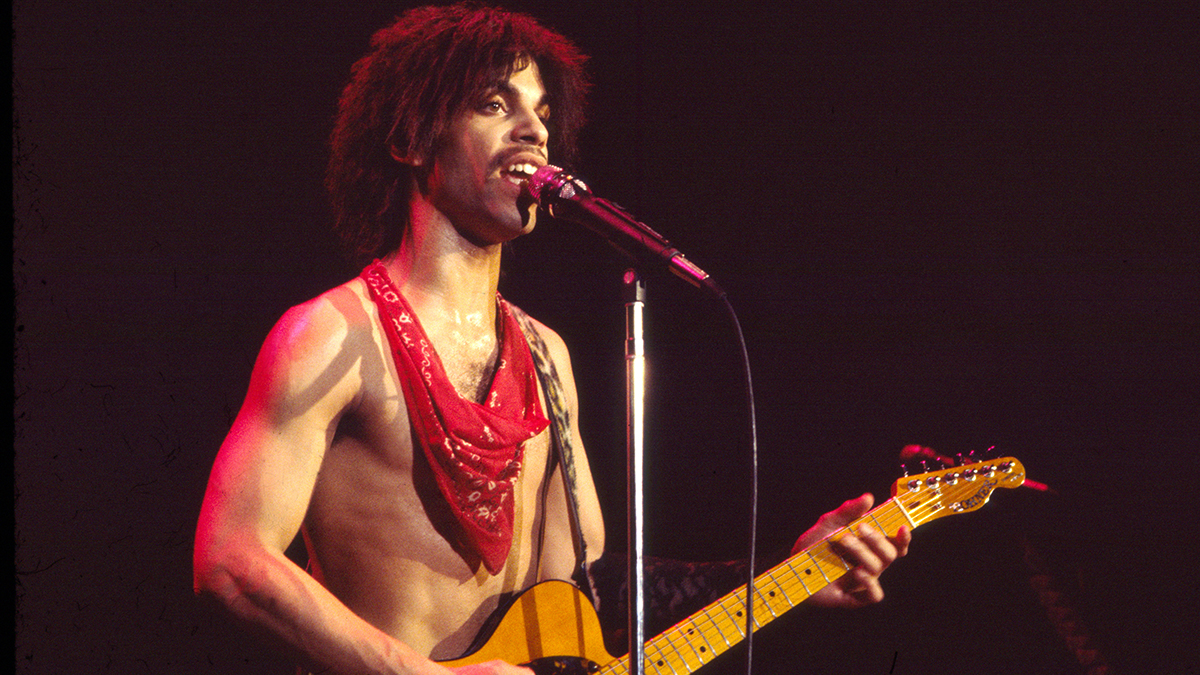Producer David Rivkin recalls his early studio sessions with a pre-fame Prince: “He had recorded every part on this little hand cassette machine; he hummed the piano part, he hummed the drum beat and then he hummed the guitar part”
“He could be very hard on people, especially when he had ‘the eye of Sauron’”
Want all the hottest music and gear news, reviews, deals, features and more, direct to your inbox? Sign up here.
You are now subscribed
Your newsletter sign-up was successful
Prince was known for self-producing his albums, but prior to being signed by Warner Bros in the late ‘70s, he spent time recording demos with producer/engineer David Rivkin (also known as David Z) in Minneapolis.
He’d planned it out and he was able to execute it all himself, which is really rare
However, though Rivkin would soon come to appreciate Prince’s remarkable talent - he continued to work with him for several years after he’d been signed - in an interview with Sunset Sound Recorders, he admits that it wasn’t immediately apparent.
Rivkin says he first came into contact with Prince in the mid-‘70s when the young musician’s then-band Grand Central came into the studio. This was a trio featuring Prince on guitar, Andre Cymone on bass and Morris Day (who would go on to front The Time) on drums.
“They had songs they had written,” says Rivkin. “It was a demo, a couple of tracks.”
Was Rivkin blinded by Prince’s star power, then? “Not at that time,” he says, but when Prince returned to his new studio a year later - this time as a solo artist under the patronage of Minneapolis businessman Owen Husney - it was a different story.
“He had all these new songs written that were great,” Rivkin recalls, “and he had recorded every part on this little hand cassette machine; he hummed the piano part, he hummed the drum beat and then he hummed the guitar part.”
Rivkin goes on to detail how Prince would listen to each part in turn and move around the studio recording them.
Want all the hottest music and gear news, reviews, deals, features and more, direct to your inbox? Sign up here.
“He’d planned it out and he was able to execute it all himself, which is really rare - to be that objective over your own playing and not sound like it was one guy,” he remembers. “It didn’t sound like it was one guy - he managed to put different personalities on different instruments.”

Despite his now-obvious talent, Warner Bros was initially sceptical about Prince’s desire to produce his own records, so he was forced to ‘audition’ in front of some of their top producers in LA to prove that he had what it took. And, having formed a working relationship with Prince, Rivkin was invited along, too.
“I was his guy,” he remembers. “I never worked for him - I just worked along with him. Which was great because I didn’t have to get the calls at four in the morning.”
Rivkin also confirms that Prince could be a harsh taskmaster: “He could be very hard on people, especially when he had ‘the eye of Sauron’. He’d focus on some person who he didn’t think was doing a job and he’d let ‘em have it.
“He was a very tough boss - assistant engineers especially. He liked to keep everybody under his thumb.”
In a different section of the Sunset Sound Recorders interview, Peggy “Mac” McCreary, another of Prince’s engineers, reveals that she also worked with Jam & Lewis (who’d previously being in Prince’s orbit as part of The Time before being fired) and Janet Jackson on a demo of the Prince-penned track Nasty Girl, a song that would eventually be recorded by Vanity 6.
“She didn’t like it - she didn’t think it was her image, which is true,” says McCreary. This explains why it didn’t make it onto Control, the first of Jackson’s Jam & Lewis-produced albums, which was released in 1986.
Discussing that record, Rivkin comments: “I love Jimmy and Terry, but that first Janet Jackson record was licks from Prince. They totally took all the licks from Prince. If you listen to it it’s the same synthesizer licks, the same grooves. Different drum sound, but…”
You can check out the full Sunset Sound Recorders interview below.



I’m the Deputy Editor of MusicRadar, having worked on the site since its launch in 2007. I previously spent eight years working on our sister magazine, Computer Music. I’ve been playing the piano, gigging in bands and failing to finish tracks at home for more than 30 years, 24 of which I’ve also spent writing about music and the ever-changing technology used to make it.